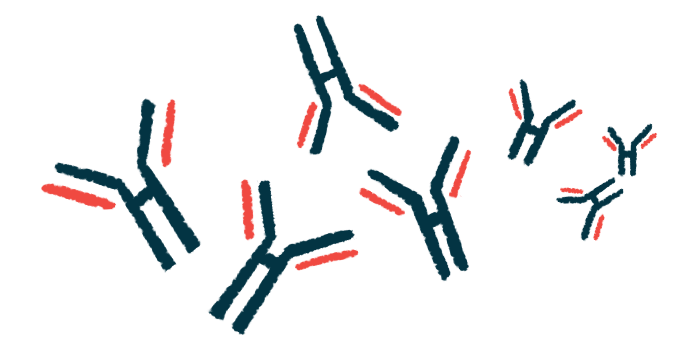ProMIS moving ahead with vaccine against toxic alpha-synuclein
Studies in Parkinson's animal models next for potential treatment, PMN400
Written by |

ProMIS Neurosciences announced arriving at a lead candidate vaccine against the misfolded alpha-synuclein protein, which the company plans to develop as a treatment for Parkinson’s disease and related disorders.
The potential vaccine, known as PMN400, is moving into preclinical testing in animal models of Parkinson’s.
“We are excited about the potential of our ground-breaking technology in neurodegenerative diseases,” Neil Warma, ProMIS’s CEO, said in a company press release.
Parkinson’s vaccine, PMN400, aims to rid cells of misfolded protein
Parkinson’s disease is characterized by clumps of the alpha-synuclein protein, which are toxic to brain cells and thought to play a central role in driving the disease. Alpha-synuclein aggregates also are found in some forms of atypical parkinsonism, including multiple system atrophy and Lewy body dementia.
ProMIS began the vaccine’s development by using its proprietary computational platform to compare toxic alpha-synuclein clumps with the normal protein, identifying molecular nooks and crannies that form when the protein clumps. Company scientists then used these specific parts of the protein to create vaccines. The basic idea in this approach is to get the immune system to make antibodies that will attach to the clumped protein and help to break it up.
Several vaccine formulations were tested in early mouse studies, and PMN400 was identified as best suited for further development. The company said it will present details of its early vaccine studies at the 2024 meeting of the American Academy of Neurology, set for April in Denver and online.
ProMIS also is developing antibody-based treatments for Parkinson’s and other neurological disorders. Its lead candidate for Alzheimer’s disease, called PMN310, is reported to be in an early clinical trial.
“While our primary focus is on the further clinical development of our lead antibody candidate, PMN310, which is currently advancing in a Phase 1a clinical trial for the treatment of Alzheimer’s disease, we are also enthusiastic about the potential of our platform for the development of novel targeted antibody therapeutics and vaccines to combat several of these debilitating diseases,” Warma said.
Early work into the potential Parkinson’s vaccine was supported by a research grant from the Weston Family Foundation to the University of British Columbia, supporting a team of researchers led by Neil Cashman, MD, chief scientific officer at ProMIS and a professor emeritus at the university.
Warma said that the grant “has allowed us to select this promising drug candidate and could enable us to broaden the application of our platform across multiple neurodegenerative diseases using targeted antibody therapeutics and vaccines to bring novel treatments to patients in need.”



